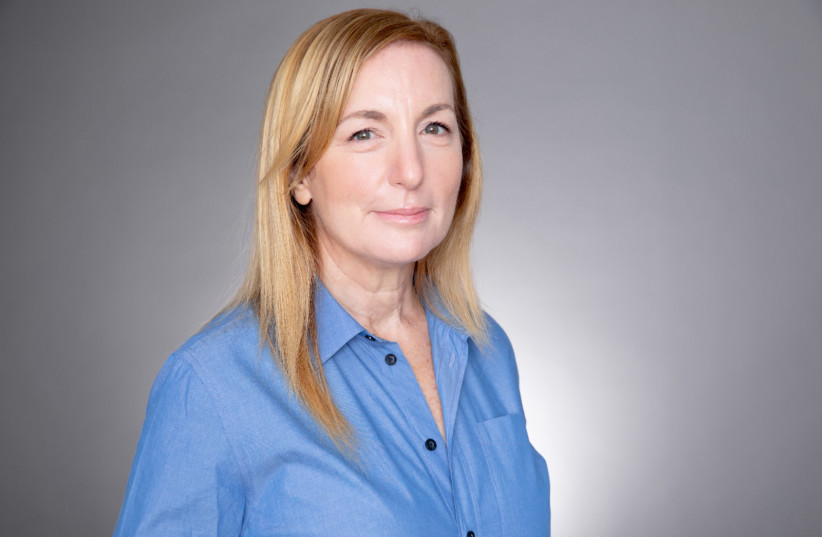Israeli nuclear physicist Dr. Naama Charit Yaari doesn’t know for sure if Iran has really enriched uranium to 84% purity or left its supplies at “only” 60% as it has claimed. But she told The Jerusalem Post in an interview on Monday that the bomb dropped by the US on Hiroshima, Japan that ended World War II had uranium with 80% purity, and if the Americans had had time to reach 93% or 94%, the damage would have doubled.
The International Atomic Energy Commission (IAEC) revealed this week that Iran has enriched uranium to the highest level ever – to 84%, which is close to the weapons’ grade of 90% – but the Iranian government quickly denied it for an unknown reason.
“So far, we have not made any attempt to enrich above 60%,” Behrouz Kamalvandi, the spokesman for Iran’s Atomic Energy Organization, said on Monday, according to the official IRNA News agency. “The presence of particles above 60% enrichment does not mean production with an enrichment above 60%,” Kamalvandi added.
Not surprisingly, the Iranian regime has not produced the necessary documents to announce its plans to raise uranium-enrichment levels at two of its nuclear facilities in Fordow and Natanz.
Charit Yaari is Israel’s representative in the UN Preparatory Commission for the Comprehensive Nuclear-Test-Ban Treaty that works to prevent experiments on nuclear weapons and not where they work on uranium. She is also a UN nuclear inspector who has made dozens of visits to Jordan, Russia, South Korea and other countries and is head of physics innovation initiatives at the Davidson Institute of Science Education, the educational arm of the Weizmann Institute of Science in Rehovot.

Dr. Charit Yaari's thoughts on Iran's nuclear progress
“Iran has been purifying uranium fuel for 10 years. It is worrisome. We can’t know yet if they are doing it or not. There will be more checks by inspectors. My organization prevents nuclear experiments but is not involved in where they purify it,” she said. “If the report by the IAEC about finding in Iran uranium enriched to the level of 84% is indeed accurate, then in theory, the Ayatollah regime already has nuclear fuel suitable for making a bomb. It will be less effective than a quality bomb, but certainly possible,” said Charit Yaari.
“To use the enormous energy stored in the nucleus of the atom, uranium 235 – an atom with 92 protons and 143 neutrons in its nucleus must be split. Most of the uranium in nature is uranium 238 (with 146 neutrons) which does not fission, so you need to separate the two types, which are very similar to each other in most respects. The most common method is through an array of thousands of centrifuges, which makes it possible to take advantage of the tiny physical differences between them to enrich the uranium – that is, to increase the concentration of the uranium that has broken down in the ore. In this process, many tons of natural uranium come to single grams of enriched uranium. Effective nuclear bombs require a very high enrichment of uranium, much more than nuclear fuel for power reactors of 93% to 94%,” she explained.
“The new finding teaches two important things. First, it seems that Iran is getting closer to the optimal level of enrichment for a nuclear fission bomb and is less than ten percent short of reaching the goal. Second, a nuclear reactor to generate electricity does not require 84% enrichment, but much less than that. However, apparently it is possible that, as the Iranians claim, they produced a very small amount of over-enriched uranium, at the level of residues only, and such a situation should not be of concern. What will indicate if this is the case is the quantity.”
The Israeli nuclear physicist added that “Iran’s economy is in a terrible state, and its citizens are angry, but it’s a shady regime. Even North Korea looks enlightened in comparison. I don’t know how the IEAC will go about inspecting, because the Iranians hide their nuclear centrifuges underground. I myself know better today than 20 years ago what to look for. They have tens of thousands of centrifuges. If the employees there work according to Western standards, it is not dangerous to their health. It’s hard to assess if they are using leftovers or they have deliberately enriched their uranium. It’s hard to believe that they reached 84% by mistake since the process is so complicated,” added Yaari. “For all that work, they get just a few grams of nuclear fuel.”
Other countries where uranium is purified include the US, Russia, the Netherlands, Belgium and Germany – but these are used mostly to produce electricity, she said.
She traveled to Jordan three times – the last in 2014 for two or three weeks at a time. “It may have not been very smart for me to go, but I was well protected. Yet, when this is so, as an Israeli physicist it is more noticed and exposed. However, in an 80-person UN delegation there, we did good work.”
Yaari visited nuclear sites including the infamous Chernobyl in Ukraine many times, the last in 2017. “The facility is buried underground like a sarcophagus. People still live in the area, some of which is toxic.” She has never been to North Korea, which is a “terror nation.”
